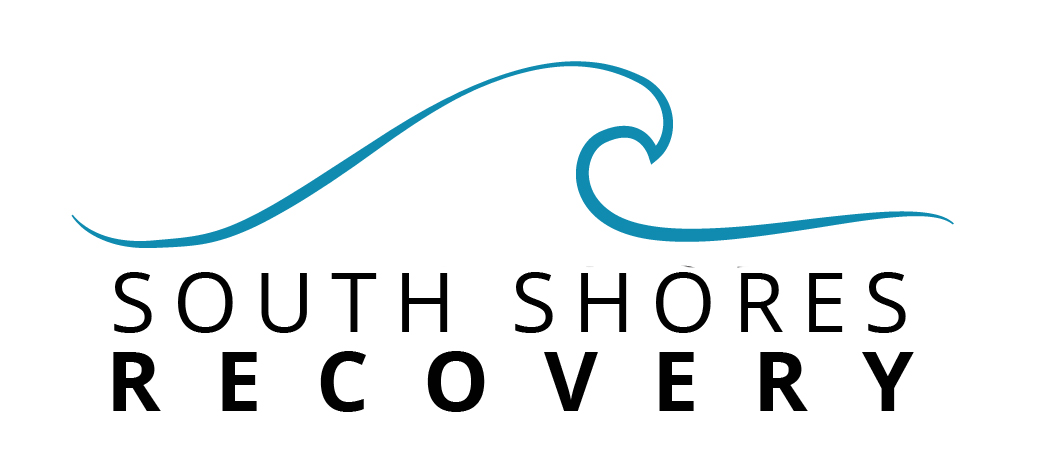Meth Recovery
Starting the Meth Recovery Process
Some of the most popularly abused substances today include stimulants such as methamphetamine. This drug is well-known for its euphoric and energy-inducing properties, making it a common source for substance abuse.
Unfortunately, meth use also has dangerous side effects, especially for those who have become addicted to this particular drug. Many meth addicts find themselves facing harsh health consequences from their drug use, yet are unable to stop on their own.
This is why seeking out professional treatment is so important for the meth recovery process. In order to properly overcome the devastating effects of this drug and maintain sobriety, seeking out meth addiction treatment services will be the best thing to do.
Keep reading to find out the best methods for getting clean from crystal and how South Shores has helped hundreds of clients overcome methamphetamines!
What is Meth?
Meth is a central nervous system stimulant, as well as a Schedule II drug under the Controlled Substances Act. There is only one FDA-approved version of this drug, Desoxyn, which is used to treat Attention Deficit Hyperactivity Disorder (ADHD).
Taking meth increases dopamine levels in the brain, making it a tempting drug to use for those who experience severe depression and anxiety.
A particularly popular form of this drug is crystal meth, which can produce a longer-lasting and more intense high. However, this form is also considered to be more dangerous and addictive, with many crystal meth users experiencing extreme adverse effects from this substance.
Due to its high risk for abuse, this drug is rarely prescribed for medical purposes, and strongly discouraged for recreational use. Even when taken with a legitimate prescription, users will need to be extremely careful with their dosage, and will likely only take this drug for a short period of time.
How is Meth Used?
Meth can be abused in several ways, including swallowing, snorting, injecting, or smoking this drug using a meth pipe. Over time, as the body becomes used to the effects of this drug and the meth wears off, users will find other means of intensifying the effects.
This can include taking higher doses, using the drug more often, or experimenting with other drugs and methods of drug abuse. This can be very dangerous for the meth user, and can lead to serious health problems over time.
Understanding Methamphetamine Addiction
Before discussing how to start the meth addiction recovery process, it is important to first understand what causes this substance use disorder to develop in the first place. Meth addiction is a complex issue that can stem from a variety of causing factors, including:
- Genetics: Some people may be more genetically predisposed to addiction than others, particularly those with a family history of substance abuse and addiction.
- Environment: Growing up in a household where drug abuse is present can increase the risk of developing an addiction early on or later in life.
- Trauma: People who have experienced trauma, such as physical or sexual abuse, may be more likely to turn to drugs as a way to cope with their pain.
- Peer pressure: Hanging out with people who use meth or being exposed to social environments in which drug abuse is prevalent can increase the risk of trying it yourself.
- Stress: People who are under a lot of stress may be more likely to use drugs as a way to self-medicate and cope with this pressure.
- Mental health disorders: People with a mental health disorder, such as depression or anxiety, may be more likely to develop an addiction.
There are many reasons why people develop substance use disorders, including those listed above. Understanding what factors are contributing to your addictive habits can help you break the cycle and stay sober in the long run.
What are the Most Common Side Effects of Meth Abuse?
While any kind of substance abuse can have serious health effects, meth in particular can be devastating to both the mind and body. Knowing what side effects can occur when taking this drug can help you and your loved ones make safer and informed decisions.
Short-Term Side Effects
Meth can have serious consequences even with just one use. When taking this drug without a prescription, individuals may be prone to experiencing various adverse effects, including:
- Increased risk-taking behavior
- Aggression
- Anxiety
- Paranoia
- Hallucinations
If the individual takes too high a dose in one sitting, this can also lead to overdose. This can cause symptoms such as severe chest and stomach pain, increased body temperature, rapid heart rate, trouble breathing, and loss of consciousness.
A meth overdose can be life-threatening, and will require immediate emergency medical attention to be properly treated. Knowing what signs to look out for can help you prevent overdose and respond properly if needed.
Long-Term Side Effects
When someone abuses meth over a long period of time, this can lead to more severe side effects. In many cases, individuals will stay high and using for days and weeks to avoid a meth come down or crash. Over time, this behavior leads to more and more physical and mental health problems, such as:
- Extreme paranoia
- Impaired cognitive function
- Reduced impulse control
- Gum and tooth decay (meth mouth)
- Unhealthy weight loss
- Severe depression and anxiety
- High blood pressure
- Organ damage
Because of how severe the long-term effects of meth abuse can be, it is important to seek professional help when stopping your use of this substance. Meth recovery can be a long process, but with the right support and resources, it is possible.
Recognizing the Signs of Meth Abuse and Addiction
Knowing the signs of meth abuse and addiction is important to know when it is time to get help. Meth addiction is a complex condition that can manifest itself in several ways. However, there are several signs that can indicate that someone may be struggling with meth, including:
- Behavioral changes: Someone who is struggling with a meth addiction may start to exhibit changes in their behavior, such as becoming more withdrawn or isolated, neglecting their responsibilities, or engaging in risky or dangerous behaviors.
- Changes in physical appearance: Meth addiction can also have a physical impact on the body, leading to changes in appearance. This can include weight loss or gain, changes in skin tone, oral decay, or the development of sores or track marks.
- Mood changes: People who are struggling with a meth addiction may experience mood swings, becoming increasingly irritable or angry, or feel depressed or anxious on a regular basis.
- Relationship changes: Meth addiction can strain relationships, as the person’s focus shifts to their drug abuse and away from their family members and friends. They may start to lie or manipulate others to get what they need, and they may neglect their responsibilities to their family and friends.
- Changes in priorities: People who are struggling with addiction may start to put their addiction ahead of other important things in their life, such as their job, school, or relationships.
It is important to note that not everyone who exhibits these signs is necessarily addicted to a substance. However, if you are concerned that someone you know may be struggling with addiction, it is important to talk to them about your concerns and to encourage them to seek help.
How Can Meth Withdrawal Symptoms Be Overcome?
Stopping using after a long time taking this drug can cause the body to crave more meth in your system and the development withdrawal symptoms. The meth withdrawal process usually takes place over two stages, and can be very uncomfortable without proper treatment.
The first stage, or acute phase of methamphetamine withdrawal will have the most severe symptoms. Some of the most common include:
- Depression and anxiety
- Intense cravings
- Insomnia
- Fatigue
- Muscle aches
- Weakness
- Dehydration
- Poor appetite
After around 7-10 days, many of these difficult symptoms and meth cravings fade, allowing the meth addict to better focus on their recovery. Some people, however, will develop protracted withdrawal, which can last about a month.
Because the meth withdrawal and recovery process can be unpredictable, it is important to have physical and emotional support throughout this process. Seeking out effective treatment can help make sure you get the help you need to successfully achieve sobriety.
How to Recover From Meth Addiction
The meth recovery process can seem intimidating to those who are still struggling with this addiction. Fortunately, there are several professional and community resources available to those who are struggling with substance abuse.
It is important to understand what services are available to you when quitting meth, and how you can go about starting your treatment process as soon as possible.
Getting Effective Meth Addiction Treatment Options
There are several treatment programs available to help those struggling with a meth addiction overcome their addictive behaviors and achieve long-term sobriety. Knowing what options are available to you and how you can get started is important for ensuring your success in sobriety.
Medical Detox
Most people will begin their addiction recovery process with a medical detox program. This will allow them to be slowly weaned off of an abused substance while in a safe and supervised environment.
Doing so can help ensure that any withdrawal symptoms or cravings that may increase the risk of relapse are being controlled. Detox is not meant to be a stand-alone form of treatment, but a tool for establishing a solid foundation for further care.
Inpatient Rehab
For those with more severe addictions, seeking out inpatient treatment may be better for their chances of successfully achieving sobriety. Inpatient care can provide more intensive support than other treatment options, as well as a structured recovery environment.
When participating in an inpatient program, you will have constant access to recovery tools and resources, as well as a distraction-free environment to help you prioritize your treatment process.
Outpatient Treatment
Outpatient rehab offers more flexible care, and typically involves ongoing counseling and recovery support groups. When participating in an outpatient program, individuals can learn new coping skills for maintaining their recovery.
From standard outpatient care, to intensive outpatient and partial hospitalization programs, this level of care can help those with busy day-to-day lives still get the support they need to overcome their addiction.
Dual Diagnosis Treatment
For those struggling with co-occurring disorders, treating their mental illness will be just as important as addressing the addiction itself. A dual diagnosis treatment center can provide the behavioral health care necessary to overcome both an addiction and mental health condition.
These treatment programs will typically use several holistic and behavioral therapies to help individuals understand both their addiction and its underlying causes. These may include:
- Cognitive behavioral therapy (CBT)
- Dialectical behavior therapy (DBT)
- Individual therapy
- Group counseling
- Family therapy
5 Proven Tips for Maintaining Long-Term Recovery
Maintaining long-term addiction recovery is a lifelong journey. There will be ups and downs, but with the right tools and support, you can stay sober for the long haul. Some tips for maintaining your sobriety include:
- Staying connected to your support network: This could include family, friends, 12-step groups, or other recovery programs. Having people to talk to who understand what you’re going through can make a big difference when you’re feeling tempted to use.
- Take care of your physical and mental health: Eating healthy, exercising, and getting enough sleep will help you feel your best and make it less likely that you will turn to drugs or alcohol to cope with stress or difficult emotions.
- Identify your triggers and develop coping mechanisms: What are the situations or emotions that make you want to use? Once you know your triggers, you can start to develop strategies for dealing with them in a healthy way.
- Be patient and forgiving with yourself: There will be times when you make mistakes or slip up. Try not to beat yourself up about it; this is a normal part of the process. The most important thing is to pick yourself up and keep moving forward.
- Celebrate your successes: When you reach a milestone in your recovery, take some time to celebrate your accomplishment. This will help you stay motivated and on track, and keep you positive about your progress.
Remember, recovery is not a one-size-fits-all journey. What works for one person may not work for another. The most important thing is to find what does work for you and stick with it. With time, effort, and consistency, you can achieve long-term recovery.
Our Meth Rehab Services at South Shores
South Shores Recovery is a drug and alcohol rehab facility located in Orange County, California. We offer a variety of treatment programs, including detox, inpatient, and outpatient services. We also have a sober living community that provides support for people in recovery.
The treatment programs at South Shores Recovery are based on the 12-step model of recovery. We also offer a variety of other therapies, such as individual and group therapy, family therapy, and holistic therapies.
Our treatment center is accredited by the Joint Commission and is a member of the National Association of Addiction Treatment Providers, a testament to our dedication to providing quality care and maintaining our high success rate in helping people achieve long-term sobriety.
Recovering from meth addiction can be an intimidating process, but we are here to help make sure you get through it smoothly and safely. Your well-being is our top priority. Reach out to our facility today to learn more about what our treatment program can do for you.
Start Your Meth Recovery Journey Here!
If you or a loved one is struggling with a meth addiction, South Shores Recovery can provide the treatment you need to successfully achieve sobriety. Our comprehensive program is committed to helping people like you become the best versions of themselves.
Reach out to our helpline to get connected with an Admissions specialist today, and learn more about how our program just might be a great fit for you or a loved one. The road to recovery is just a phone call away, so pick up the phone and reach out today!
FAQs on Recovering from Meth Addiction
Can I Stop Using Meth By Myself?
Because of how unpredictable meth addiction and withdrawal can be, it is never recommended to attempt to stop using this drug on your own. In order to have the best chance at a successful recovery, it is always best to seek professional help.
What Treatment Option is Best for Meth Recovery?
There are several treatment options available to help those struggling with meth addiction. Knowing which of these services will be best for your needs can be difficult. It is important to keep in mind that there is no one-size approach to the recovery process.
Depending on your needs, you may benefit from participating in a variety of different treatment options. Speaking with an addiction specialist can help you get a better idea of which levels of care will be best for your needs.
Contact us





